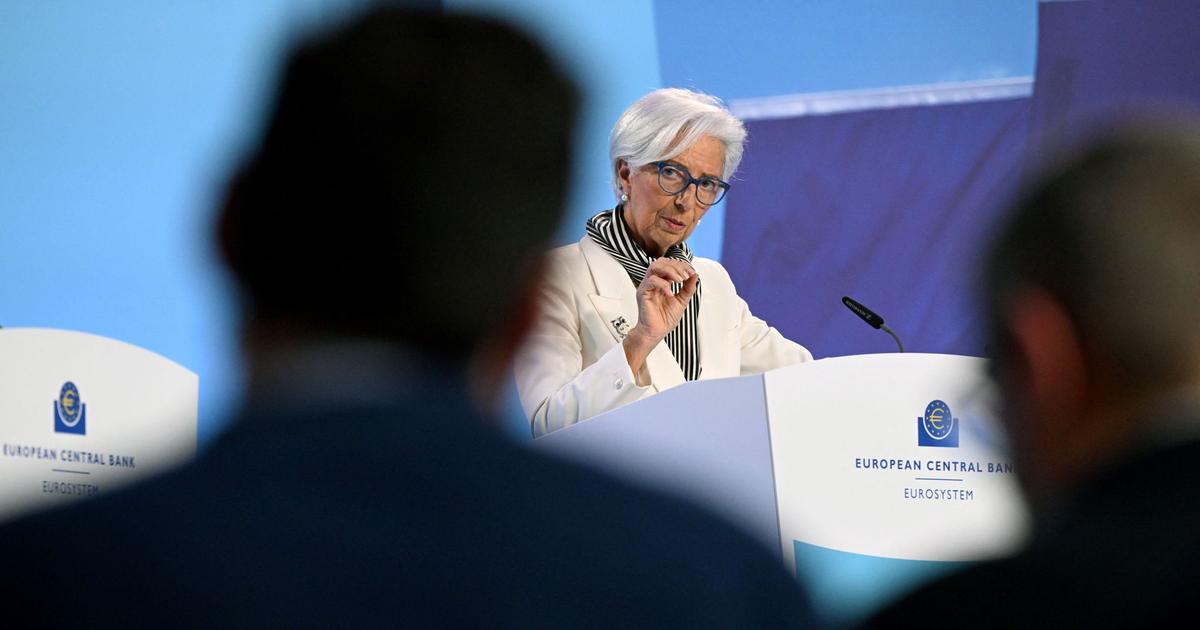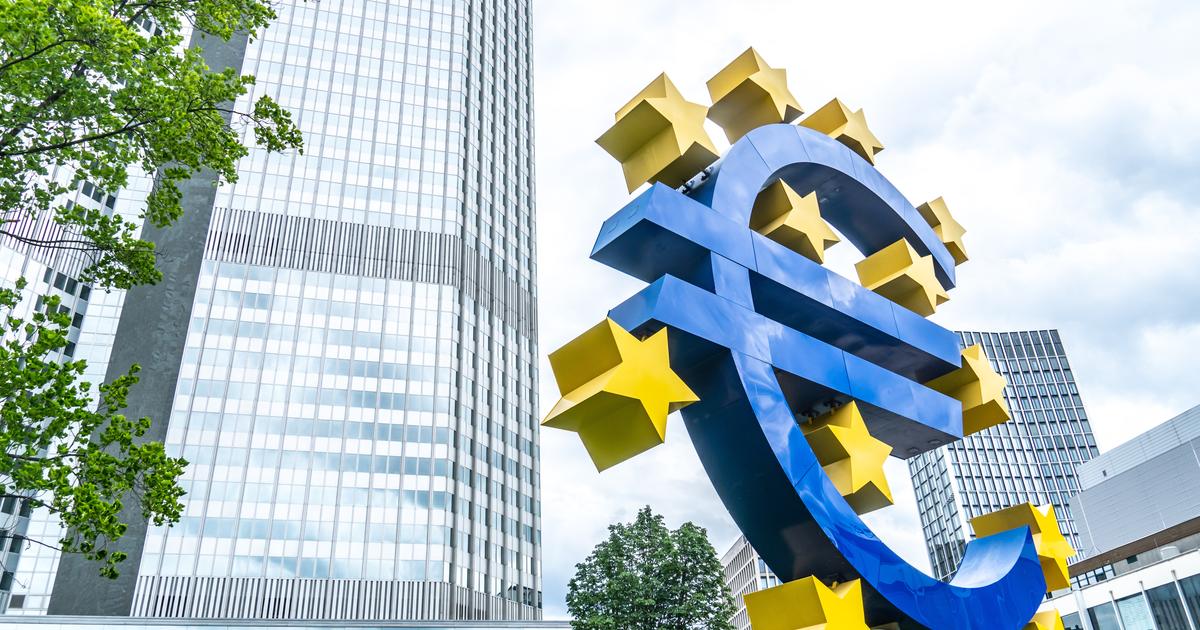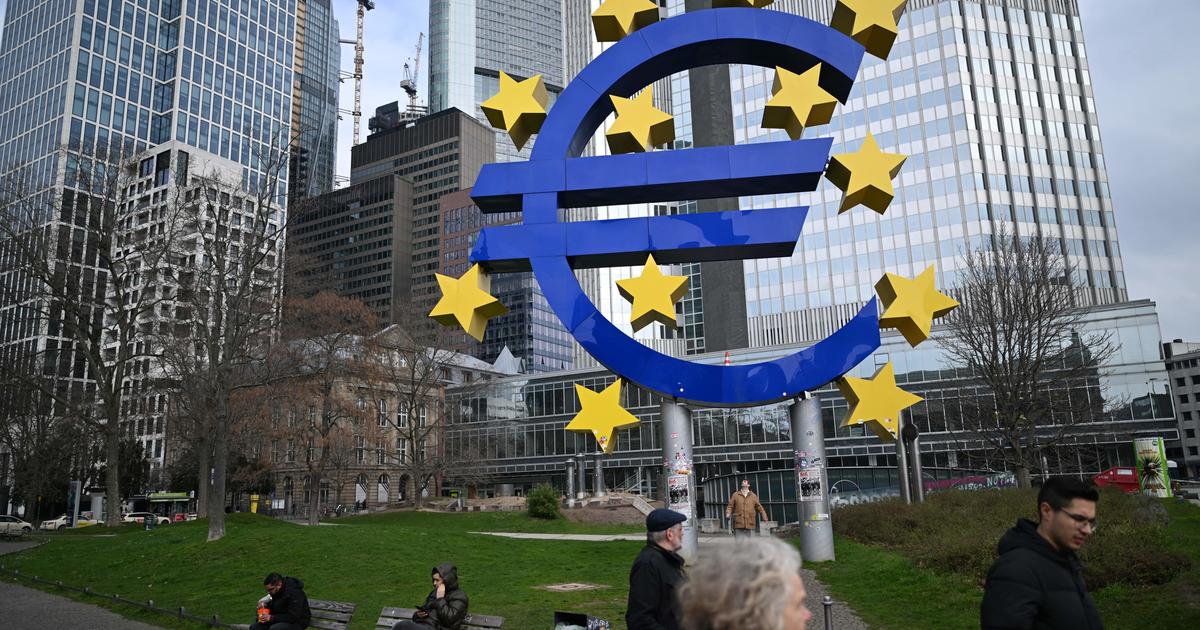Enlarge image
ECB headquarters in Frankfurt am Main
Photo: Boris Roessler / dpa
If any consumer, home builder or amateur economist was hoping that inflation would fall once the European Central Bank (ECB) hiked interest rates, Christine Lagarde had bad news for them.
“Inflation will not fall quickly.
Monetary policy decisions will now take longer to take effect,” said the ECB President on Thursday afternoon.
The central bank leadership had previously announced the first interest rate hike in a good ten years, as had been expected for weeks;
it is to take effect after the next meeting on July 21.
The three main interest rates should then rise by 25 basis points each:
the main refinancing or key interest rate at which commercial banks borrow money from the ECB (currently: 0.0 percent);
the deposit rate at which they park money with her (currently minus 0.5 percent);
and the prime lending rate at which they borrow money from the ECB overnight (currently 0.25 percent).
At the same time, by the end of the month, the central bank would like to end the multi-billion dollar bond purchases that it has been using for years to lower lending rates on the market, making it easier for countries, companies and citizens to take on new debt.
Sad certainties sugarcoated with rhetorical elegance
Despite all this, for the time being, most eurozone Europeans will have to be careful when they drive to the gas station, the supermarket or the travel agency (whoever still does that; but online vacation planning doesn't look any better either ).
In May, prices in the euro zone were 8.1 percent higher than a year ago - an unimaginable figure for people who grew up with the euro.
And one that also shocks older contemporaries.
Above all, however, a value that Lagarde, she has made clear on several occasions, will not be able to change anything so quickly, even though the ECB is actually aiming for a maximum of two percent inflation.
“We are on a journey, and today is a necessary starting point.
But it's still a journey," said the Frenchwoman, who has made it an art form to sugarcoat sad certainties with rhetorical elegance.
But verbal finesse will not help Lagarde out of the many dilemmas in which the ECB, partly through its own fault, finds itself.
For months, their number pushers, above all chief economist Philip Lane, have underestimated the inflationary consequences of the central bank(s)’ years of loose monetary policy, the governments’ exorbitant Corona state aid and the global supply backlog caused by broken supply chains.
"Everyone made the mistake of underestimating inflation," Lagarde justified, which is actually unjustifiable.
Lagarde was asked whether she could rule out that the ECB inventors miscalculated again in their next forecasts.
"We'll do what we can," was her somewhat helpless reply.
At the same time, the ECB has to perform an enormous ballet: On the one hand, it must finally and seriously combat inflation by raising interest rates, and on the other hand, it must not drive the fragile euro economy into recession.
The latter can happen faster than feared, after all Europe is in the pincer grip of two totalitarian regimes: China's state leadership feels obliged to zero Covid madness and could paralyze the global economy again at any time with new lockdowns;
meanwhile, the warmonger in the Kremlin gives the impression that he takes diabolical pleasure in gambling with fossil fuels and food.
Putin as an invisible guest on the Governing Council
In any case, both have direct consequences for the world economy.
And above all for Europe's most important national economy, Germany, which is more dependent on the Russian gas tap and the Chinese sales market than almost any other nation.
And so Vladimir Putin sat as something of an invisible guest at the table in Amsterdam, where the ECB grandees had exceptionally moved their council meeting.
Another problem is not yet acute, but may have the greatest explosive power in the long term and is currently occupying the monetary watchdogs more than they are officially willing to admit: the potential centrifugal forces within the euro zone, for which economists use the term »fragmentation«.
The matter sounds more complicated than it is: what can hold the eurozone together when debts for countries like Italy or Greece become exorbitantly expensive again because doubts arise about their financial solidity?
Italy's bond yields are already rising more significantly than those of German bonds.
"We will not accept fragmentation," Lagarde said in Amsterdam.
But how is she going to prevent that?
In fact, the situation is much more complicated: the ECB can continue to use the money it receives when the government bonds it has bought expire to buy new ones on the market and thus help individual finance ministers out of a tight spot if necessary.
However, it does not get rid of the dubious reputation of operating state financing in this way.
But that is a problem for the day after tomorrow. First of all, the current inflation has to be suppressed.
Unusually by European standards, Lagarde has already announced further interest rate hikes for the next central bank meetings, which may be larger than the 0.25 percentage points now targeted for July.
It is quite likely that this will happen, see China, Russia and in general.
Lagarde himself says that inflation is solidifying and higher wage increases are likely – which should actually mean that the ECB economists around Chief Economist Lane, who are not always solid, would have to increase their inflation forecasts.
The analysts at Deutsche Bank subsidiary DWS rightly say that »the ECB (...) is not conclusive in its arguments«.
On the other hand, Lagarde and the ECB cannot push the interest rate tube much more resolutely without endangering the economy and ultimately the cohesion of the euro zone.
When Lagarde started her job in November 2019, there was neither Corona nor war in Europe;
the world seemed, at least from today's point of view, a soft pink.
It is hardly to be expected that by the end of her term of office in 2025 things will be the same as at the beginning.
The ECB is in what US military calls a "clusterfuck."
At least this time there was a business trip to beautiful Amsterdam.








/cloudfront-eu-central-1.images.arcpublishing.com/prisa/C3LDLHDAXBBCFCHWBPELHN64FU.jpg)






